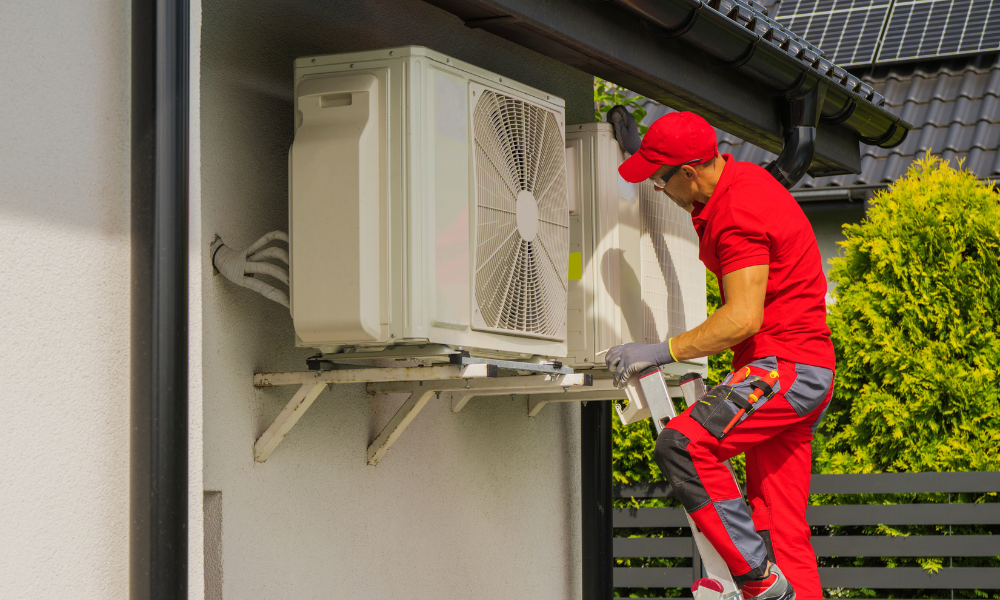In a ground-breaking move toward a greener future, the United Kingdom has announced a bold plan to ban oil boilers by 2026. This significant decision is set to revolutionize the country’s heating systems, reduce carbon emissions, and pave the way for a more sustainable future. In this blog post, we’ll explore the details of the UK’s new oil boiler a ban and its implications for the environment, homeowners, and the heating industry.
The UK’s commitment to combatting climate change and achieving its net-zero emissions target by 2050 is the driving force behind the oil boiler ban. Heating systems powered by oil are a major contributor to greenhouse gas emissions. By phasing out these systems, the UK aims to have energy security and significantly reduce its carbon footprint.
The transition away from oil boilers will have a profound positive impact on the environment. Here’s how:
Oil boilers are notorious for emitting carbon dioxide and other harmful pollutants into the atmosphere. By banning them, the UK will drastically cut its emissions, helping to combat global warming.
Oil combustion releases harmful particulate matter and air pollutants that can affect air quality and human health. With oil boilers out of the equation, the air we breathe will become cleaner and healthier.
Homeowners in the UK won’t be left in the cold after the oil boiler ban. There are several eco-friendly alternatives to existing boiler to consider:
Electric radiators are a versatile and cost-effective option for heating individual rooms or supplementing your main heating system. They offer precise temperature control and can be programmed to match your specific heating requirements. Modern electric radiators are energy-efficient and come in stylish designs that blend seamlessly with your home décor.

Air Source Heat Pump (ASHP): ASHPs extract heat from the outdoor air and transfer it inside your home. They work efficiently even in colder temperatures and can be a great fit for many UK homes.
Ground Source Heat Pump (GSHP): GSHPs harness heat from the ground through buried pipes. While the installation cost is higher, they are exceptionally efficient and provide consistent heating year-round.
Biomass boilers use organic materials such as wood pellets, chips, or logs as fuel. These systems are not only renewable but also carbon-neutral, as the carbon dioxide released during combustion of fossil fuels is offset by the carbon absorbed by the plants during growth. They can be a great choice for rural homes with access to a sustainable wood supply..
Solar thermal systems harness the power of the sun to heat water for your home. They consist of several solar panels or collectors mounted on your roof that absorb sunlight and transfer the heat to a fluid, which then heats your domestic hot water. While they may not provide all your heating needs, they can significantly reduce energy consumption.
The ban is just a few years away, so it’s crucial for homeowners to prepare for the transition. Here are some steps to consider:
Assess the efficiency and condition of your oil boiler. Consider upgrading existing oil boiler to a more energy-efficient system before the ban takes effect.
Explore the eco-friendly heating options available and choose one that suits your home and budget.
Consult with heating professionals to ensure a smooth transition to a new system. They can help you choose the right solution and provide installation guidance.
By addressing the critical issue of heating systems, the UK’s oil boiler ban is a significant stride toward achieving its climate goals. If you have any questions about this ban or need assistance with transitioning to a more sustainable heating system, don’t hesitate to contact us. Together, we can make a difference in the fight against climate change.

The proposed oil boiler ban, will also have a significant impact on the heating industry. As demand for existing oil boilers decreases, there will be a growing market for using alternative fuels and heating systems. This presents new opportunities for heating companies to specialize in eco-friendly solutions and contribute to a sustainable future.
Heating professionals should invest in training and certifications related to renewable heating methods and technologies to stay competitive in the evolving market. As the demand for heat pumps, biomass boilers, and solar thermal systems rises, skilled technicians will be in high demand.
The UK’s decision to ban oil boilers by 2026 is a major leap forward in the fight against climate change. It underscores the government’s commitment to reducing carbon emissions and creating a cleaner, healthier environment for all. While this transition may require some adjustments for homeowners and the heating industry, the long-term benefits far outweigh the challenges so there will be no new oil boilers.
As we move closer to the 2026 deadline, it’s essential for homeowners to act proactively, explore alternative heating solutions, and take advantage of available incentives. By doing so, we can collectively contribute to a more sustainable future for rural communities and set an example for other nations to follow in the battle against climate change.
Tags: Switching to Electric.

If you are considering electric heating/electric radiators, then this guide tells you everything you need to know. Discover this modern, sustainable and economical method of heating that gives you complete control and comfort. Download Free Guide now.

*Trust Electric Heating needs the contact information you provide to us to contact you about our products and services. You may unsubscribe from these communications at any time. For information on how to unsubscribe, as well as our privacy practices and commitment to protecting your privacy, check out our Privacy Policy.
Quick installation and a 100 day warmth guarantee. Whether you’re buying one or several radiators, if our radiators don’t heat your room to a minimum of 20 degrees we will undertake to upgrade or replace the radiators free of charge.
Book your free consultation